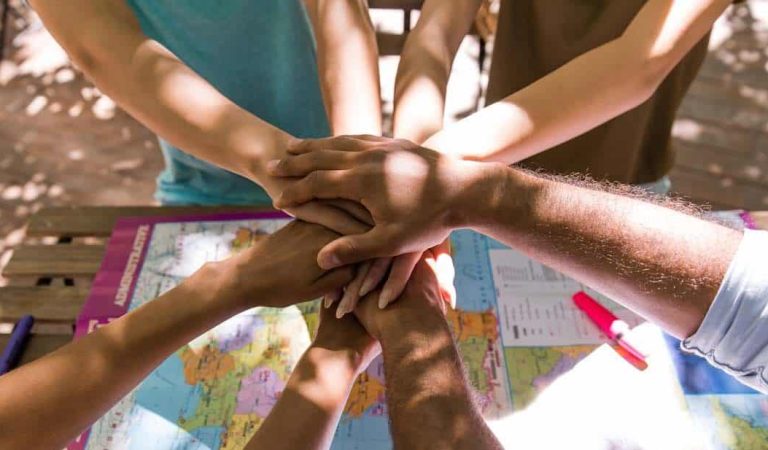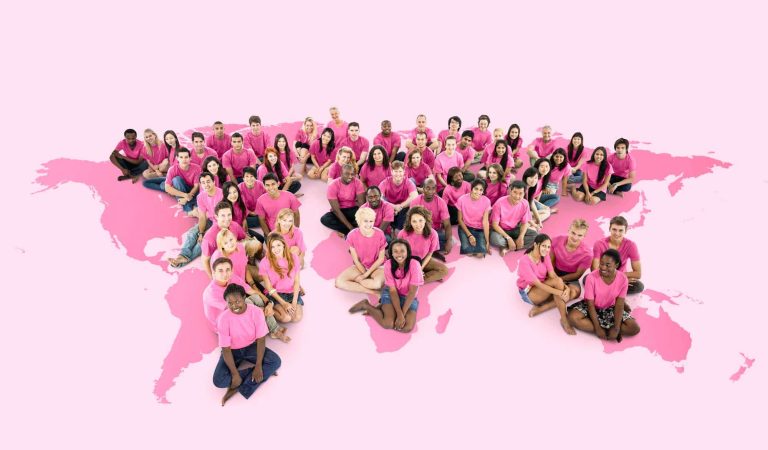To begin this reflection, it is important to understand philanthropy as different types of acts that seek to contribute to the well-being of others without expecting a direct reward. However, more and more people and organizations are seeing that behind it there is a benefit to the shared environment through structural actions and projects that strengthen the societies and ecosystems where we all live. Philanthropy has the power to accelerate progress where it is most needed and to support the causes that can drive real change in the world. This benefits people, the planet and society as a whole.
Although it is often associated with large donations of money, its true scope is much broader: it encompasses everything from small- and large-scale monetary support to volunteering, community participation, empathy and ownership of social causes, as well as the different ways in which organizations and activists that generate impact are supported.
Philanthropy has been a historical pillar and driver of change. From the ancient civilizations that promoted charity as a moral duty to the large foundations that today finance innovations in health, education and social justice, its impact is undeniable.
Since its inception, philanthropy has been key in building more equitable and resilient societies. In ancient civilizations, mutual aid and charity were part of moral and religious codes. In classical Greece, public beneficence was a common practice among wealthy citizens, who financed works for the benefit of the community, such as theaters, public baths and festivals. In the Roman Empire, philanthropy was institutionalized through alimenta, a child welfare program funded by wealthy emperors and senators
In the modern era, figures such as Andrew Carnegie and John D. Rockefeller laid the foundations for contemporary philanthropy, while today entrepreneurs such as MacKenzie Scott and organizations such as the Bill and Melinda Gates Foundation and the Ford Foundation, among others, continue to transform communities globally.
Philanthropy is fundamental to social justice and democracy. Through philanthropic practices, initiatives are supported that reduce inequalities, promote human rights and strengthen democratic institutions. In a world where economic and social gaps persist, philanthropy offers tangible solutions and mechanisms that seek to make it possible to bridge these differences under a logic of solidarity, while the actors involved participate in a more democratic dynamic of empowerment and agency.
Since its inception, philanthropy has been key in the construction of more equitable societies. In Latin America, it has played an important role in the development of organized civil societies and in the promotion of rights and social justice. In addition, it has allowed for the creation of successful models that have been replicated to address structural problems such as poverty and inequality.
One of the great truths of philanthropy is that anyone can be part of it. Yes, we can all be philanthropists. You don’t have to be a millionaire to make a difference: donating time, sharing knowledge, educating yourself with content from civil society experts on local and global issues, even amplifying causes on social networks are all ways to contribute. Philanthropy is a space that continues to democratize, allowing people from different economic and social backgrounds to become agents of change. It is the movement that makes this possible.
In fact, it has never been easier to be a philanthropist than it is today. Social networks make it possible to raise awareness of causes, connect with organizations and facilitate donations in seconds. Owned and open fundraising platforms such as GoFundMe, Patreon and GlobalGiving have made it possible for individuals to fund projects with just one click. In addition, technology has enabled new forms of philanthropy, such as impact investing and crypto donations. Digitization and the development of applications make it possible to connect volunteers and donors with social projects more efficiently.
Social networks and technological platforms are revolutionizing philanthropy. These tools allow people to become an active part of programs that seek to address different social causes. They allow users and consumers to educate themselves about issues, amplify messages, generate views that allow for monetization for the sustainability of organizations, as well as make donations more easily. Influencers and artists can be examples of how networks have the potential to inspire solidarity on a large scale.
However, one of the biggest challenges in philanthropy is channeling resources towards those who generate real impact. To this end, implementing organizations have been developed and have been key in this process. With a developed infrastructure and relationships of trust built up, these organizations ensure that donations and support reach those who need it most, through methodologies that guarantee transparency and accountability. At Articulate Foundation, we specialize in identifying key issues, designing engagement processes, connecting stakeholders and efficiently channeling resources to bring about social transformation.
Philanthropy is currently in a state of constant evolution, adopting new tools and approaches and carving out a place for itself in the resolution of governmental tensions and conflicts. The combination of traditional models with technological innovation and multisectoral collaboration is broadening its impact, demonstrating that philanthropy is not only an essential pillar but will be the determining factor in generating social change in the 21st century.
Being a philanthropist doesn’t cost much, but its impact is incalculable. Every action counts: a donation, an hour of volunteering, even a post on social media promoting a cause. Social transformation needs everyone, and with today’s resources and technologies, contributing has never been easier. Philanthropy has the power to accelerate progress where it is most needed and support causes that create real change in the world.
The question is not whether you can be a philanthropist, but how to start today.
















